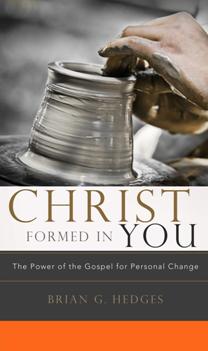How good is your grip on the doctrine of sin? If you've made it this far in this book, you probably recognize and accept that you are a sinner. You acknowledge, along with Paul, that despite your underlying desire to be holy you still want some things you should not want, think some things you should not think, like some things you should not like, say some things you should not say, and do some things you should not do. All this sinful thinking and acting is bound up with your desire for some kind of satisfaction, some taste of happiness. Me, too. You and I sin because we believe it will make us happier, even if only for a moment.
You could easily then conclude that there must be something
wrong with happiness. You might even think that wanting to be happy, or seeking
satisfaction for yourself, are suspicious, questionable activities—flirtations
with the unholy, self-indulgence run amok. How can you have a heart that races
after joy without also racing after sin? Holiness, after all, requires
self-denial, doesn’t it?
Yes, it does. But consider this. Have you ever heard a
well-intentioned Christian leader say, “God is more concerned with your
holiness than your happiness”? In a sense, this is true. God certainly places a
high premium on holiness. But the problem lies in what this statement implies.
The balanced, biblical reality is that the pursuit of holiness and the quest
for joy are not at odds. The two goals are really one.
The Holy Pursuit of Joy
So, everyone longs for happiness. And believers in Jesus
thirst for holiness. But holiness and happiness are not mutually exclusive. God
is not a cosmic killjoy who is indifferent to the joy of his children! To
suggest that God doesn’t want us to be happy rips the heart out of biblical
statements like, “Blessed [happy] are
those who hunger and thirst after righteousness for they shall be satisfied” (Matt. 5:6, emphasis added).
God is concerned with both our holiness and our joy. On one
hand, God knows we can never find true and lasting happiness apart from
holiness, because holiness is the pure oxygen that happiness breathes. Without
holiness, joy suffocates, withers, and dies. Sin kills joy. But when we cherish
righteousness and detest sin, joy will flourish and grow. As Scripture says of
Jesus, “You have loved righteousness and hated wickedness; therefore God, your
God, has anointed you with the oil of gladness beyond your companions” (Heb.
1:9). In the words of Thomas Brooks, an English pastor in the seventeenth
century, “Holiness differs nothing from happiness but in name. Holiness is
happiness in the bud, and happiness is holiness at the full. Happiness is
nothing but the quintessence of holiness.”[i]
On the other hand, the quest for joy is one of the primary
motivations for pursuing holiness. Over and over, Scripture appeals to our
desire for joy and satisfaction by promising blessing for those who seek
Christ. And Scripture repeatedly warns that misery will come to those who
refuse Christ and choose sin instead. Seeking satisfaction outside of a
relationship with God simply won’t work. As C. S. Lewis wrote,
God made us: invented us as a man
invents a machine. A car is made to run on petrol, and it would not run
properly on anything else. Now God designed the human race to run on Himself. He
Himself is the fuel our spirits were designed to burn, or the food our spirits
were designed to feed on. There is no other. That is why it is just no good
asking God to make us happy in our own way without bothering about religion.
God cannot give us happiness and peace apart from Himself, because it is not
there. There is no such thing.[ii]
Only as we seek our satisfaction in God will we begin to
break free from the gravitational pull of sin’s lower pleasures. In the words
of Matthew Henry, “The joy of the Lord will arm us against the assaults of our
spiritual enemies and put our mouths out of taste for those pleasures with
which the tempter baits his hooks.”[iii]
